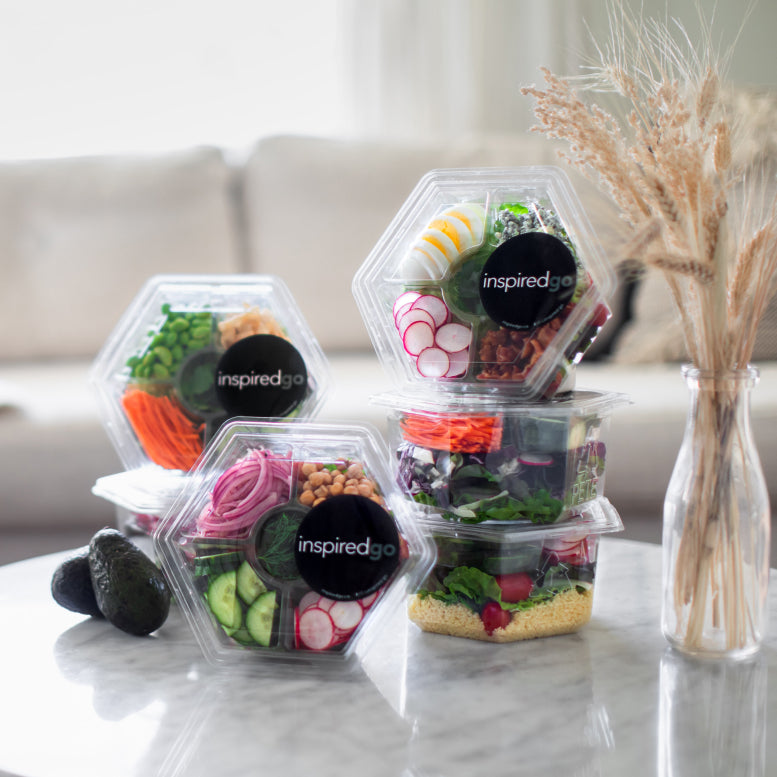What’s The Best Vegetarian Meal Delivery Service?
Table of Contents
1. Embracing Nutritious and Sustainable Eating with Vegetarian Meal Delivery Services
2. What Is a Vegetarian Diet?
3. What Are Healthy Fats to Eat on a Vegetarian Diet?
4. Why Are Pre-Portioned Vegetarian Meals Beneficial?
1. Embracing Nutritious and Sustainable Eating with Vegetarian Meal Delivery Services
One of the significant advantages of a vegetarian meal delivery service is that it reduces food waste. You receive the right portion size for your meals, eliminating the chances of leftovers that eventually go to waste. Moreover, these services are aligned with sustainable practices, offering 100% recyclable packaging and engaging in community-focused initiatives. They also provide transparency in nutrition information, ensuring you are well-informed about your dietary choices. So, whether you're a seasoned vegetarian or someone looking to explore plant-based eating, vegetarian meal delivery services are a perfect way to ensure a healthy, sustainable lifestyle.
Order fresh salads today →


2. What Is a Vegetarian Diet?
A vegetarian diet focuses on plant-based foods such as fruits, vegetables, grains, legumes, nuts, and seeds while excluding meat, poultry, and fish. Depending on individual preferences, some vegetarian diets also include dairy products and eggs. This diet is widely recognized for its health benefits, including lower cholesterol levels, reduced risk of heart disease, and improved digestion. Vegetarian meal delivery services simplify following this lifestyle by offering fully prepared, ready-to-eat meals tailored to these dietary preferences. Each meal is crafted with protein-rich plant ingredients such as tofu, lentils, and beans to ensure balanced nutrition. Nutritional transparency, including clear labeling of macronutrients and calories, helps customers track their intake effectively. Vegetarian meal delivery eliminates the need for meal planning, grocery shopping, and cooking, making it easier to maintain a nutritious and satisfying diet.
Choose your salads and schedule delivery →
3. What Are Healthy Fats to Eat on a Vegetarian Diet?
Healthy fats play a critical role in energy production, hormone regulation, and brain function, and vegetarian diets offer numerous sources of these beneficial fats. Foods like avocados, nuts, seeds, olive oil, and dairy products are rich in heart-healthy fats. Vegetarian meal delivery services incorporate these ingredients into pre-prepared meals to ensure a balanced intake of essential fatty acids. Meals are designed to maintain a proper macronutrient balance, supporting overall health and sustained energy. Transparent nutritional labeling allows customers to monitor their fat intake, promoting dietary awareness. By offering ready-to-eat meals packed with healthy fats, vegetarian meal delivery simplifies achieving a balanced diet.
Get fresh salads and snacks delivered →
4. Why Are Pre-Portioned Vegetarian Meals Beneficial?
Inspired Go’s pre-portioned vegetarian meals are designed to simplify balanced eating by offering consistent portion sizes and nutritional transparency. Each meal is crafted with optimal ratios of proteins, carbohydrates, and healthy fats, ensuring customers receive balanced nutrition in every serving. Portion control prevents overeating and reduces food waste, making it easier to maintain dietary goals. Subscription models provide regular deliveries, ensuring customers have continuous access to ready-to-eat, nutrient-dense vegetarian meals. With detailed calorie and macronutrient labeling, customers can monitor their intake accurately. Inspired Go combines precision, balance, and convenience in every meal, supporting sustainable and health-focused dietary habits.
Try our fresh, ready-to-eat salads →
Frequently Asked Questions
A vegetarian diet focuses on plant-based foods, eliminating meat, poultry, and fish while including fruits, vegetables, grains, legumes, nuts, and seeds. Depending on the type of vegetarianism, it may also include animal-derived products like dairy and eggs. Popular variations include lacto-ovo vegetarian (includes eggs and dairy) and lacto-vegetarian (excludes eggs but includes dairy). The diet is often chosen for ethical, environmental, or health reasons and supports a nutrient-dense lifestyle when properly balanced.
Vegetarian foods include a wide variety of plant-based options like fruits, vegetables, whole grains, legumes, nuts, and seeds. Dairy products such as milk, cheese, and yogurt, as well as eggs, are included in lacto-ovo vegetarian diets. Vegetarian-friendly dishes range from hearty grain bowls and vegetable curries to pasta, soups, and salads. Many processed foods, such as chips or baked goods, can also be vegetarian, though reading labels is key to avoiding hidden animal-based ingredients.
Yes, many vegetarians eat eggs, depending on their dietary preference. Those following a lacto-ovo vegetarian diet include both eggs and dairy products, while lacto-vegetarians exclude eggs but consume dairy. Eggs are an excellent source of protein, vitamins, and minerals, making them a valuable addition to a vegetarian diet. However, vegans avoid eggs entirely, as their diet excludes all animal-derived products, including dairy and honey.
Vegetarians can meet their protein needs by incorporating a variety of plant-based and animal-free sources. Protein-rich options include legumes (lentils, chickpeas, black beans), tofu, tempeh, nuts, seeds, and whole grains like quinoa. For those who consume dairy and eggs, options like Greek yogurt, cheese, and eggs provide additional high-quality protein. Combining different plant proteins, such as rice and beans, ensures a complete amino acid profile, supporting muscle repair and overall health.
Yes, eggs and cheese are allowed on a lacto-ovo vegetarian diet, which includes both dairy products and eggs alongside plant-based foods. These ingredients are excellent sources of protein, calcium, and other essential nutrients. Lacto-vegetarians exclude eggs but include cheese and other dairy products. Vegans, however, do not consume eggs, cheese, or any other animal-derived products, focusing solely on plant-based foods and alternatives.

